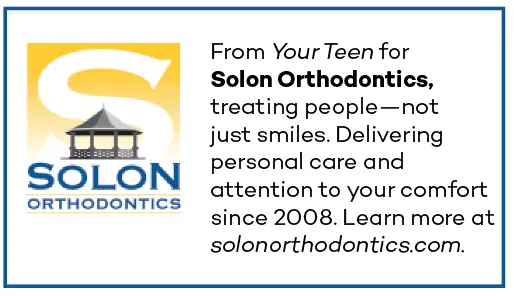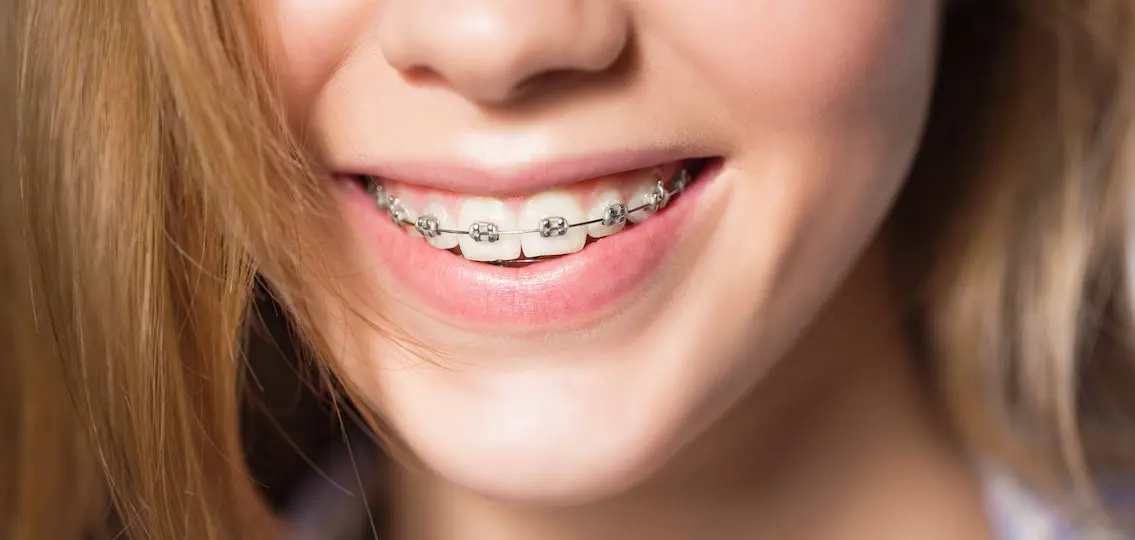How do you know if your teen needs braces, and when should you get a first consultation? What should teens and parents expect? There are so many questions for the orthodontist. We asked Dr. Philip D. Bomeli, DDS, MS of Solon Orthodontics in Solon, Ohio to answer them.

Q: When should you first see an orthodontist?
Bomeli: To answer this question, the American Association of Orthodontists recommends that a child see an orthodontist by the age of seven. That might seem young, but by that age, most children have “mixed dentition”—a mix of baby and permanent teeth. We can generally see at that early point if things are going to go awry, like permanent teeth not coming in properly and other crowding and spacing issues. If nothing else, an early consult establishes a good baseline. Most orthodontists won’t charge for this initial consultation.
Q: What might need to happen before they can get braces?

Q: How long does the typical treatment last?
Bomeli: The average treatment time is 18 to 24 months, with a 6-month window on either end depending on how quickly things move. The length of treatment varies depending on how compliant the patient is about wearing rubber bands and retainers.
Q: What if my teen doesn’t want to get braces?
Bomeli: Most teens don’t love the idea of getting braces, but they’re willing to do it. They really want to know about how long they’ll have braces, food restrictions, and discomfort. I don’t really think it’s effective to be stern or lecture them, but it really helps if I explain how it works so that they can understand why they need to do what I ask of them. If they are worried about how the braces look, there are a number of different options for teens who don’t want the standard metal brackets, like Invisalign or clear ceramic braces.
Q: What if my child is anxious about orthodontal care?
Bomeli: I can usually assess their level of comfort. When we know that a patient is very apprehensive, we can schedule more time for an appointment to talk through each step and give them the opportunity to take a break if they’re uncomfortable. We may try to schedule a time of day when the office will be quieter and not quite so busy. In addition, we have an open office and encourage parents to come back to the treatment area with their child if that reassures them.
Q: How long will they need to wear a retainer?
Bomeli: Whenever a patient asks me this after taking braces off, I tell them, “As long as you want your teeth to be straight.” I will never tell patients to stop wearing their retainers. Most people who stop will have some movement. The retainer protocol has really changed. Adults may remember having their orthodontist tell them to wear their retainer until their wisdom teeth come in, or maybe for the first few years of college. Now we know that the long-term data and clinical experience show the importance of retainers. So when you ask this question to an orthodontist, they will explain that patients who want to keep their smile should continue wearing them as part of their daily routine. If you don’t, your teeth can move, even into adulthood.





